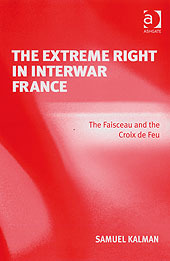Historians of the French extreme right frequently denote the existence of a strong xenophobic and nationalist tradition dating from the 1880s, a perpetual anti-republicanism which pervaded twentieth-century political discourse. Much attention is habitually paid to the interwar era, deemed the zenith of this success, when the leagues attracted hundreds of thousands of members and enjoyed significant political acclaim. Most works on the subject speak of 'the French right' or 'French fascism', presenting compendia of figures and organizations, from the Dreyfus Affair in the 1890s through the notorious Vichy regime, the authoritarian construct which emerged following the defeat to Nazi Germany in June 1940. However, historians rarely discuss the programmatic elements of extreme right-wing doctrine, which demanded the eradication of parliamentary democracy and the transformation of the nation and state according to group principles. Instead, most detail the organization and membership of various organizations, and often recount their quotidian activities as political actors within (and in opposition to) the Third Republic. This book offers a new interpretation of the extreme right in interwar French politics, focusing upon the largest and most influential such groups in 1920s and 1930s, the Faisceau and the Croix de Feu. It explores their designs for extensive political, economic, and social renewal, a project that commanded significant attention from the leadership and rank-and-file of both organizations, providing the overarching goal behind their aspiration to power. The book examines five components of these efforts: A renewal of politics and government, the establishment of a new economic order, a revaluation of gender and familial relations, the role of youth in the new socio-political construct, and the politics of exclusion inherent in every facet of Faisceau and CDF doctrine. In so doing it contributes to a historical understanding of the programmatic elements of the interwar extreme-right, while simultaneously situating its most prominent exponents within their broader historical context.




